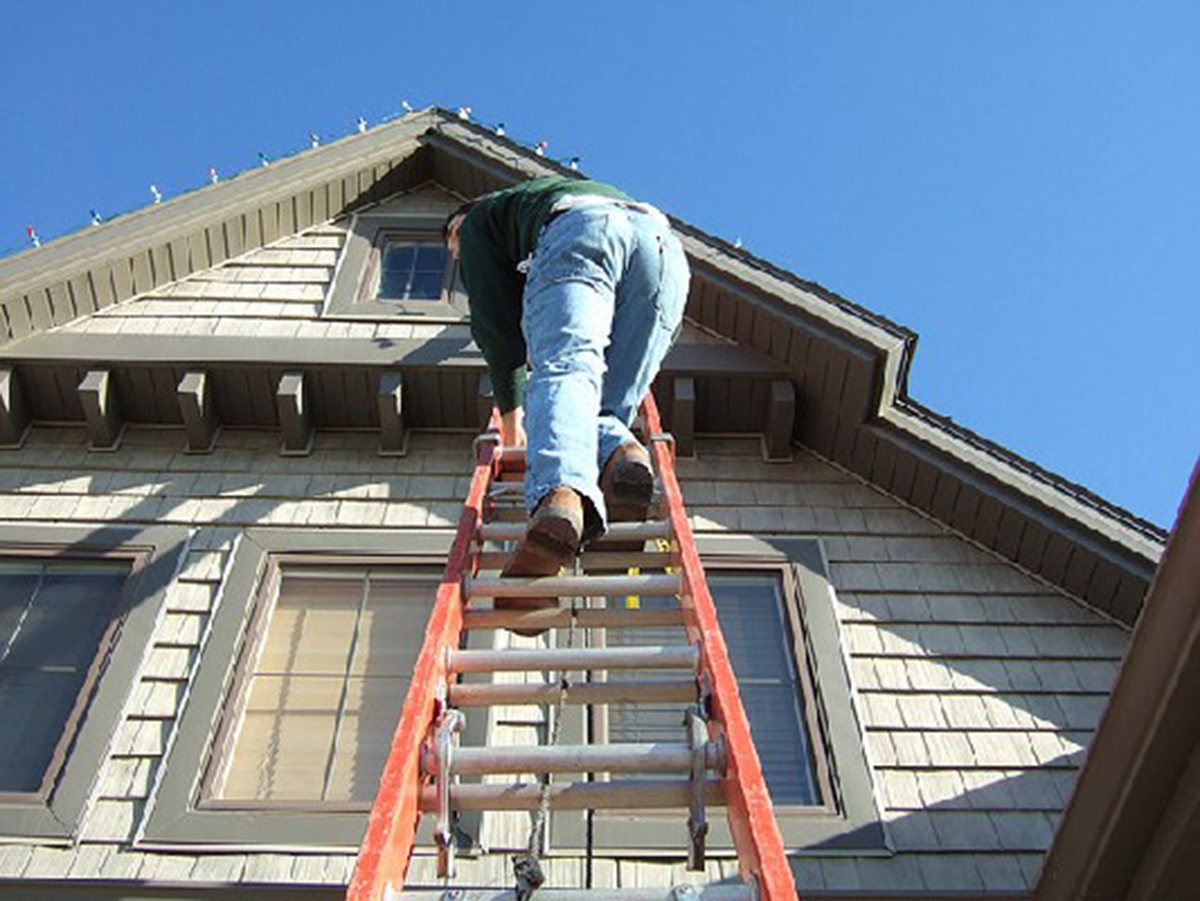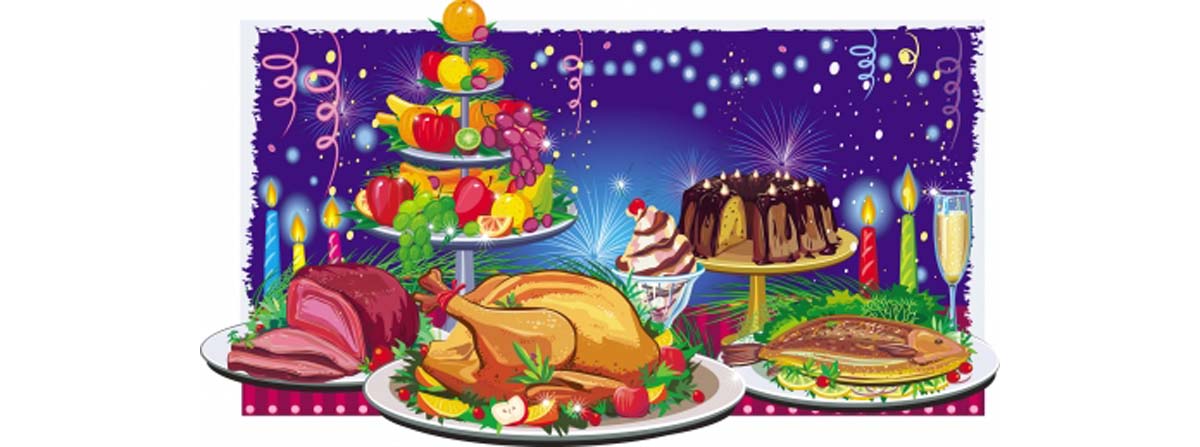Common Outdoor Christmas Hazards
Christmas is less than a week away. People are finishing their rehearsals of Christmas carols, completing their Christmas decorations, and finding the last (or, in some cases, the first) of their Christmas gifts. The overwhelming majority of people celebrating the holiday will pass the season without incident. For a few, unfortunately, Christmas will bring preventable injury or even tragedy.
The most serious accidental injuries this time of year usually occur outdoors

Auto crashes. Especially in the United States, December is prime time for car crashes. People who drink little or nothing at all during the year imbibe alcohol for the holidays, and misjudge their sobriety behind the wheel. There is nothing you can do about other drivers, but you can stay alert to drunk drivers, especially after midnight, when the effects of alcohol combine with sleep deprivation.
Snow and ice. In most of the United States and Europe, Christmas is usually free of snow and ice, although 2010 is shaping up to be an exception to the rule. If Christmastime is the only time you use skates or skis, at least make sure you are well padded before you take to the rinks or the slopes. And don't get in such a hurry to get to your car over icy sidewalks with armloads of gifts that you take a nasty spill.
Ladders. Last year in the UK, which has 1/6 of the population of the US, over 5,700 people were injured in falls from ladders. It is not unreasonable to assume that tens of thousands of people are injured every year in falls from ladders around the world. The important things to remember about safety on ladders are:
- Make sure the ladder you use is rated to support your weight. If you weigh more than 250 pounds (115 kilos), you will need an “industrial strength” ladder. If you buy your ladder in the United States, it should be marked with the Underwriters Laboratory (UL) seal of approval.
- Place the base of your ladder on a stable surface with both legs firmly on the floor or ground.
- Secure tall ladders with lashing or cables.
- Always face the ladder going up or coming down.
- Keep both feet on the ladder. Never put one foot on the ladder and the other foot on another surface.
- Never stand on the top shelf of a ladder.
- If you are wearing a belt, make sure the buckle does not get caught in a rung.
- If you working with lights, use a ladder made of wood or fiberglass, not metal.
When decorating for the holidays, safety is key. Ensure all electrical decorations are in good condition and use them according to manufacturer instructions to prevent fire hazards. Keep decorations out of walkways to avoid tripping, and secure them properly to prevent falls. If you have small children or pets, avoid small, breakable ornaments and toxic plants like mistletoe or holly berries. Be cautious with candles; never leave them unattended and keep them away from flammable materials. Check that outdoor decorations are weatherproof and securely fastened to withstand winter conditions. This mindful approach helps ensure a safe and joyful holiday environment.
An Even More Common Christmas Health Hazard: Heart Attack
Although tens of thousands of people suffer outdoor accidents at Christmas, an even more common occurrence is heart attack. What has Christmas got to do with heart attacks? To understand the connection it is necessary to understand what really causes a heart attack.
It is a common misconception that heart attack occurs when there is a “clog” in the “pipes.” Cholesterol accumulates in the lining of arteries and a clot stops the flow. When the heart's supply of oxygenated blood is interrupted, tissue dies causing a heart attack. But this isn't usually what happens.

Approximately half of people who have heart attacks do not have cholesterol deposits in their arteries, and nearly half of people who have cholesterol deposits in their arteries do not have heart attacks. The real problem is not clogs in arteries, but a lack of flexibility in the arteries. And nothing interferes with the flexibility of the arteries more than the load of sugar and fat released by the digestion of a huge Thanksgiving or Christmas dinner.
If your arteries can relax to provide more room to flow, you will not suffer a heart attack. If your arteries pucker like a string, then you may have a heart attack. In terms of dietary choices, sugar is actually more of a problem than fat. If you eat a high-fat meal, not that it's a good idea to do so, then the particles of fat entering your bloodstream and slip and slide through the tighter corners of your cardiovascular system. If you also eat a lot of sugar, however, then your arteries will be inflexible for about eight hours. The eight hours after a huge holiday feeding are the time of greatest danger for your heart. But all you have to do to avoid this hazard is to save some room for eating later!
Also, during the holiday season, maintaining an active lifestyle is essential. Schedule your workouts as you would any important appointment, ensuring they're a priority. When outdoor conditions are challenging, opt for indoor exercises like yoga or home aerobics. Enjoy active family outings, such as ice skating or hiking. If traveling, explore destinations on foot through walking tours. Dancing at home or engaging in active gaming can also be fun ways to stay moving. Consider shorter, high-intensity workouts if pressed for time. Participate in holiday-themed runs for a festive exercise experience, and don't forget to include regular stretching or yoga to stay flexible and manage stress.
Stressful Relationships as a Christmas Health Hazard
Another important health consideration at Christmastime is depression. While there are many factors that can cause the holiday blues, the greatest number of people experience emotional upset as a result of disappointments in personal relationships. There are not guidelines for making the holiday you share with family friends perfect, but here are some suggestions many people find make the season better:
If your holiday looks lonely, reach out to other people who may be even lonelier. If you have suffered a loss due to age, moving away, divorce, death, or family discord, don't spend the whole holiday inside by yourself. Get out in the presence of other people, even if it is just for a short while.

Don't expect other people to be able to read your mind. If others are making unreasonable demands on your time, energy, money, and patience, it is better politely to let them know than it is to stew inside.
Set realistic expectations for the holiday. If last year's celebration was special, it can be a let-down to spend less, do less, or see fewer people this year. Realize ahead of time that this Christmas may not be as exciting, but leave room for unexpected pleasant surprises.
Take time out if you need it. Rather than explode, it is better to walk away from an impossible situation. If you have constant responsibilities for others, make it clear that a few hours or days just for yourself would be a very welcome gift.
Get professional help if you need it. Finally, rather than to take life-changing or life-ending action, seek the help of a counselor, social worker, psychiatrist, clergyman, or hot line if the emotional stresses of the holidays get to be too much. You may have a very different perspective on the holiday in just a few weeks.
- Phillips DP, Jarvinen JR, Abramson IS, Phillips RR. Cardiac mortality is higher around Christmas and New Year's than at any other time: the holidays as a risk factor for death. Circulation. 2004 Dec 21, 110(25):3781-8. Epub 2004 Dec 13
- Photo courtesy of Craig Maash on Flickr: www.flickr.com/photos/craigmaas/301982133/

